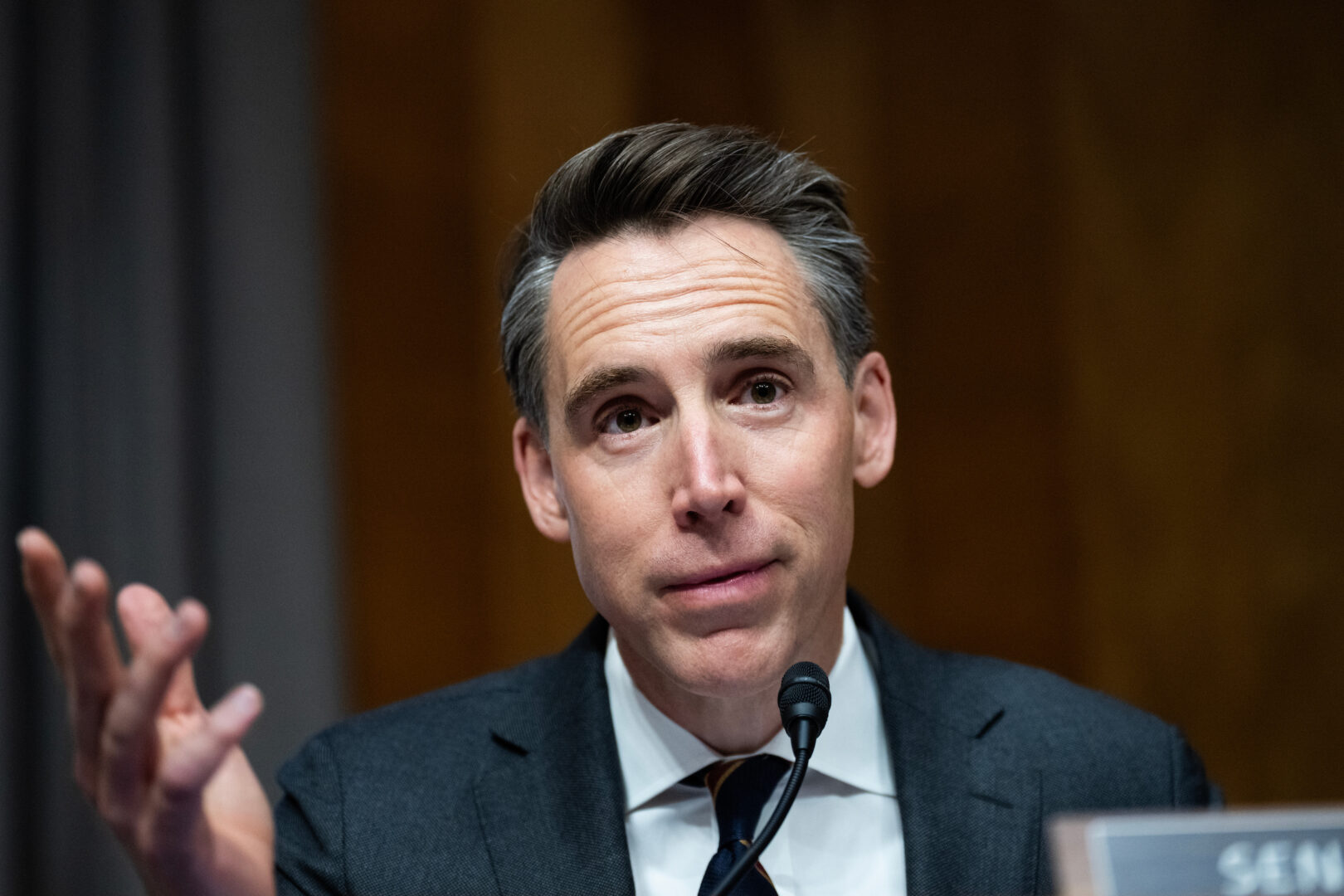A significant legislative push to prohibit members of Congress, the president, vice president, and their immediate families from trading and owning stocks gained traction this week, signaling a growing bipartisan effort to address perceived conflicts of interest. Spearheaded by Senator Josh Hawley, the bill aims to bolster public trust in government by curbing financial activities that could be influenced by privileged information.
The proposed legislation narrowly cleared the Senate Homeland Security and Governmental Affairs Committee with an 8-7 vote, following intense debate and the adoption of a key amendment. This crucial modification, championed by Hawley, broadened the scope of the prohibitions beyond just lawmakers, extending the ban to include the Oval Office, highlighting a comprehensive approach to executive and legislative branch financial ethics.
Originally known as the the “PELOSI Act,” a moniker referencing Republican allegations against former Speaker Nancy Pelosi regarding insider trading, the bill underwent a significant transformation. The substitute amendment not only changed its title but also saw the removal of Senator Bernie Moreno as a co-sponsor, replaced by Senator Gary Peters, the Homeland Security panel’s ranking member, signaling a bipartisan shift in its backing.
The legislative advancement drew immediate attention from former President Donald Trump, who expressed conceptual support for the measure while simultaneously reiterating calls for an investigation into Nancy Pelosi’s alleged insider trading activities. His comments underscored the politically charged nature of the debate, intertwining policy with long-standing political grievances and accusations of financial impropriety within Washington.
Senator Hawley articulated the rationale behind the bill, emphasizing widespread public support for preventing lawmakers from profiting from information uniquely accessible to them through their official positions. He contended that while legislative briefings might not fall under existing insider trading statutes, the intelligence gathered is undeniably valuable and could influence personal financial decisions, thereby necessitating stringent new regulations.
However, the bill was not without its detractors, most notably Senator Rand Paul, who voiced general opposition and specifically challenged a last-minute alteration to the divestment timeline. The modification, introduced during the markup, pushed the required divestment of assets from 2027 to the start of each official’s next term, a change that critics argued could dilute the bill’s immediate impact and allow for continued financial maneuvering.
Other senators weighed in, reflecting a spectrum of opinions on the proposed ban. Senator Ron Johnson argued that such prohibitions could deter qualified individuals from seeking public office, labeling the bill as “legislative demagoguery” given existing financial disclosure and insider trading laws. Conversely, Senator Elissa Slotkin, while acknowledging the bill’s imperfections, expressed a willingness to support “good work” rather than waiting for an an ideal solution, a sentiment echoed by Senator Andy Kim, who suggested public service should not hinge on the ability to trade stocks.
The debate also brought to light concerns regarding the effectiveness of blind trusts, which Hawley criticized as being insufficiently secure and difficult to monitor, leading to a direct confrontation with Senate Ethics Committee Chairman James Lankford. Hawley’s assertion that the Ethics Committee does not adequately police these trusts was sharply rebuffed by Lankford, who affirmed the committee’s oversight, highlighting internal disagreements on current ethical enforcement mechanisms.
Ultimately, the progression of this bill through the Senate committee underscores a persistent demand for greater financial transparency and accountability among public officials. The heated discussions surrounding its provisions, from the scope of its prohibitions to the efficacy of existing ethical safeguards, reflect a national conversation about integrity in governance and the public’s expectation of undivided loyalty from its elected representatives.





Leave a Reply